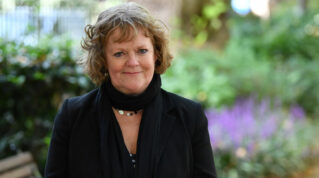A new House of Lords committee is calling for evidence for a review of curriculum and qualifications in England. The committee on education for 11- to 16-year-olds writes that “the secondary education system In England is currently at a crossroads”, adding to growing interest in reform.
Most educators in England are unaware that the Scottish education system is half a step ahead in plans to reform curriculum and assessment. The momentum for change that is building in Scotland holds lessons (good and bad) for any future review of our own system, and teachers and policy-makers here stand to learn a lot from its history and progress.
Curriculum for excellence
Scotland’s ‘Curriculum for Excellence’ was launched in 2004. Its ambition is impressive, and its explicit aims are to develop successful learners, confident individuals, responsible citizens and effective contributors.
An educational vision which puts young people at the centre and values their contributions to society is a positive and worthy aim. However, its implementation has been more problematic. Holyrood commissioned the OECD to carry out an external review of its education system in 2021, and the result was not entirely complimentary.
In theory, Scottish pupils benefit from a broad general education from early years until specialisation in their final years at school. In practice, however, their experience may be fragmented and bitty rather than expansive and interdisciplinary.
Backwash from accountability measures often distort pupils’ experience. Many schools narrow the curriculum towards public exams, sometimes to quite a dramatic extent. Children are over-examined. Many sit public exams three years in a row, in a partially overlapping range of external examinations including National 5s, Highers and Advanced Highers. Each year is characterised by a “two term dash” towards the exams.
As the OECD points out, “the examination syllabus becomes the de facto curriculum and teachers switch to narrower test preparation methods with secondary years students”. A familiar refrain.
Proposals for reform
In response to the OECD report, the Scottish government announced its intention for wholesale review. Professor Louise Hayward has recently published her interim recommendations, which include
rebalancing internal and external assessment and streamlining academic and vocational pathways. The report sees technology as a lever for change: another aim is to use digital technologies to assess and record achievements.
However, the central proposal is for a Scottish Diploma of Achievement. This Baccalaureate-style leaving Certificate, which values breadth as well as traditional assessment of subject content, has three strands.The first is the most conventional. The diploma will assess pupils’ progress in subjects or curricular areas. Most students would accumulate credits over two years, and sit exams at the end of the course.
The second strand is ‘Learning in Context’. This is envisaged as an interdisciplinary project which combines a range of knowledge and competencies, not dissimilar to our Extended Project Qualification. The Hayward Review, however, suggests that this might involve local community projects or – somewhat airily – that students might tackle “global issues [such as] climate change, social justice, or migration”. No pressure.
The third is perhaps the least defined. In ‘Personal Pathways’, students can record “their personal interests, commitments and activities, the contributions they make to society and their career aspirations”. The inspiration of the International Baccalaureate and its compulsory CAS component (creativity, activity, service) seems evident here.
The way ahead
There are plenty of barriers ahead for the implementation of such far-reaching reforms in Scotland. For those of us in England, including the Lords’ Committee, there is good sense and helpful provocation in its vision.
It is a reminder that the assessment system is not a given, that we can use it to achieve more than one aim and that our curriculum decisions shape the way that thousands of teenagers spend their time and energy.
And it asks some helpful questions. Should we create a system which encourages contributions to society as well as deep subject knowledge? Do we want to reduce the intensity of terminal exams? Is it realistic to see digital technology as a solution in assessment, rather than as a threat?
Watching the Scottish reforms unfold will certainly be informative for the debates we are increasingly likely to have ourselves.






Your thoughts